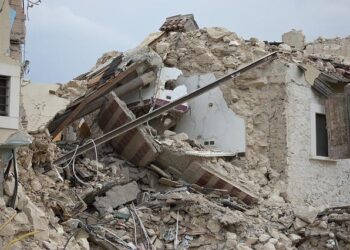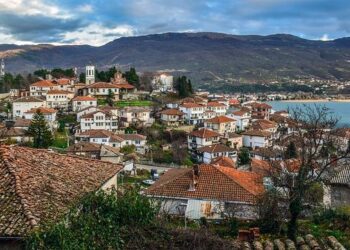The Council of Europe has called on North Macedonia to address the persistent gap between its commitments and the reality on the ground regarding the human rights of the Roma community and environmental protection. Despite official pledges to uphold and advance these critical issues, reports indicate ongoing challenges that hinder progress. This urgent appeal highlights the need for concrete actions and sustained efforts to ensure that the rights of marginalized groups are respected and that environmental standards are effectively enforced across the country.
Council of Europe Calls on North Macedonia to Address Persistent Human Rights Challenges for Roma Communities
The Council of Europe has highlighted ongoing concerns regarding the situation of Roma communities in North Macedonia, urging national authorities to take meaningful steps toward eliminating systemic discrimination and improving living conditions. Despite the country’s various policy frameworks aimed at protecting human rights and promoting social inclusion, tangible progress in areas such as access to education, healthcare, and adequate housing remains insufficient. The Council emphasized the importance of bridging the gap between commitments on paper and real-world impact, signaling that persistent disparities continue to undermine the rights and dignity of Roma populations.
In addition to social challenges, the Council also underlined the critical link between environmental protection and the well-being of marginalized communities, including Roma settlements often located in vulnerable areas. Prioritizing sustainable development and inclusivity, the Council recommends:
- Implementing community-driven environmental initiatives to ensure safe and healthy living conditions
- Enhancing transparency and participation of Roma representatives in decision-making processes
- Strengthening legal frameworks to combat discrimination and promote equal access to public services
| Challenge | Current Status | Recommended Action |
|---|---|---|
| Education Access | Below national average | Introduce targeted scholarship programs |
| Housing Conditions | Inadequate and insecure | Develop affordable housing projects |
| Environmental Risks | High exposure | Enforce environmental safety regulations |
Urgent Need for Concrete Measures to Improve Environmental Protection in Vulnerable Regions
North Macedonia faces a critical crossroads, where pledges concerning the rights of the Roma community and environmental protection require swift action and tangible outcomes. Despite various proclaimed commitments at both national and international levels, the gap between policy frameworks and on-the-ground realities remains stark. Vulnerable regions, particularly those inhabited predominantly by Roma populations, suffer disproportionately from environmental hazards such as pollution, inadequate waste management, and lack of access to clean water. These conditions not only undermine public health but exacerbate long-standing social inequalities, limiting opportunities for sustainable development.
Experts and institutions, including the Council of Europe, emphasize the necessity for concrete, measurable steps to address these intersecting challenges. Key priorities include:
- Implementing robust environmental monitoring systems in vulnerable communities
- Ensuring inclusive participation of Roma representatives in environmental decision-making
- Allocating targeted funding for infrastructure improvements
- Integrating environmental education programs tailored to affected populations
Without decisive measures, the environmental and human rights situations risk further deterioration. The following table summarizes critical areas demanding immediate attention:
| Focus Area | Current Status | Recommended Action |
|---|---|---|
| Waste Management | Poor infrastructure, illegal dumping | Modernize facilities, enhance waste collection |
| Water Quality | Limited access to clean water | Install filtration systems, improve supply networks |
| Community Engagement | Low Roma representation in policy decisions | Promote participatory councils and training |
Experts Urge North Macedonia to Strengthen Policy Implementation and Accountability Mechanisms
The Council of Europe’s recent evaluation sheds light on the pressing need for North Macedonia to intensify efforts in closing the divide between its human rights commitments and the tangible living conditions of the Roma community, alongside environmental safeguards. Experts emphasize that while legal frameworks and policies exist on paper, their practical application remains insufficient, undermining the well-being of vulnerable groups and the country’s ecological integrity. This discrepancy calls for a systematic overhaul in the supervision and enforcement of existing regulations to ensure that progress is measurable and meaningful.
Key areas identified for immediate attention include:
- Enhancement of accountability structures within local administrations
- Transparent monitoring systems with community participation
- Effective resource allocation for environmental protection projects
- Strengthened capacity-building for officials responsible for Roma rights
Without these critical improvements, experts warn that North Macedonia risks stagnation in its human rights agenda and environmental commitments, jeopardizing its broader aspirations for European integration and social cohesion.
| Policy Domain | Current Challenge | Recommended Action |
|---|---|---|
| Roma Inclusion | Insufficient implementation of housing rights | Strengthen legal enforcement and community engagement |
| Environmental Protection | Limited monitoring of pollution levels | Introduce real-time tracking and transparent reporting |
| Accountability Mechanisms | Lack of clear responsibility and oversight | Create independent oversight bodies with enforcement powers |
In Retrospect
As North Macedonia moves forward on its path toward greater integration with European institutions, the Council of Europe’s call to bridge the gap between commitments and reality on Roma human rights and environmental protection stands as a critical benchmark. Addressing these challenges not only fulfills international obligations but also paves the way for a more inclusive and sustainable future. The country’s ability to translate promises into tangible progress will be closely watched by the international community, underscoring the importance of accountability and genuine reform in these key areas.
















